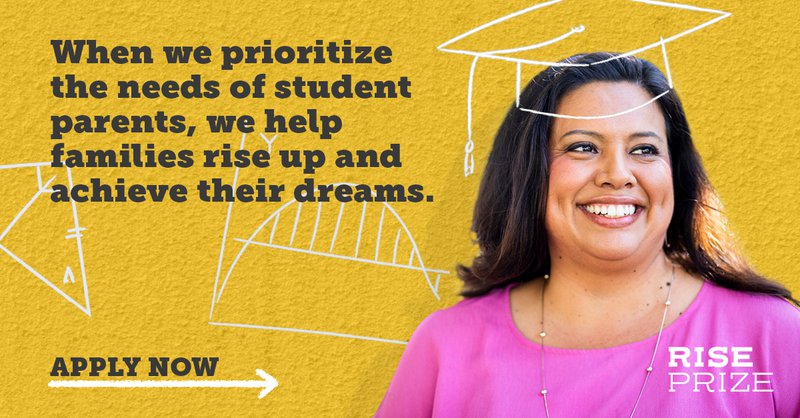Coronavirus Scare Has Exposed Cracks in Our Systems

The rapid spread of the coronavirus has led to a drastic shift in how we learn, how we work and how we care for our children. Nearly 4 million postsecondary students who are also parenting have been hit on all three accounts, sometimes all at once. They are now studying online. They may have experienced disruptions in care. They are also likely to be part of the 61% of Americans that report having lost income from job loss, reduced hours or reduced pay, as a result of COVID-19.
These disruptions have exposed how many cracks exist in and between the systems that employ, educate, and support us. The coronavirus has accelerated—by light years, it seems—the timeline for addressing these pressing issues.
Accelerating investments in student parents is one promising way to jumpstart equity for everyone.
These 4 million college students - and a large portion of the 16 million students enrolled in alternative career pathways, bootcamps, and workforce programs - are a microcosm of the challenges facing many people navigating school and work in the United States: balancing the competing time demands of home responsibilities, child care and work, while financing and completing a degree or credential that can offer access to better paying jobs. Student parents are resilient, many pursuing postsecondary education to provide a more secure life for themselves and their families. Student parents have higher GPAs on average compared with other students. But the cracks too often swallow them up: less than half of student parents graduate.
Student parents are resilient, many pursuing postsecondary education to provide a more secure life for themselves and their families. Student parents have higher GPAs on average compared with other students. But the cracks too often swallow them up: less than half of student parents graduate.
Vinice Davis
The good news is that we know a lot more about what student parents need to succeed than we used to. Addressing many of their needs will also help their children and non-parents too. At Imaginable Futures, we have a keen eye on how the strengths of student parents can improve the academic outcomes of not only their children, but also will have a broader societal impact. We need innovative solutions that follow the “6 C’s” framework:
Child care. Having affordable and reliable child care triples graduation rates among single mothers in college, but access to on-campus child care has declined in recent years and currently serves 5 percent of students. Costs of child care can leave many prospective students out: the average cost of child care is higher than the average cost of tuition in most states.
Community of support. Student parents often feel isolated and alone as they navigate systems that largely do not recognize that they exist. Mentoring, coaching, mental health services, and peer learning and support can provide crucial social capital that encourages students to continue and complete their degree programs.
Completion time. One study found that students with young children had half as much time as childless students to dedicate to schoolwork, sleeping, eating, and leisure activities. Another study found that single mothers who attend school full-time spend 9 hours per day—more than the typical full-time work day—just on care and housework. Greater access to programs, such as those offered by Southern New Hampshire University or Concourse Education, that place a greater emphasis on skills than credit hours could help student parents, or any student with significant time demands, complete a degree or certificate
Convenience first. With limited time, student parents need greater access to high-quality virtual, digital, and online education programs that can allow them more flexibility to fit learning into their schedule. By pairing online learning with in-person coaching and other supports, PelotonU saw an 80% persistence rate among the adult learners they worked with in Austin, TX, much higher than the 33% persistence rate among all part-time students in Texas.
Cost. This year, the student loan debt crisis reached $1.6 trillion and debt for student parents is two-and-a-half times higher compared with non-parenting students. Financial burden is the number one reason college students stop out of school. Innovative technological solutions, like Edquity, can help students access additional streams of financial aid or emergency cash assistance when they need it.
Credential connected to a career. With the future of work reshaping the employment landscape, it is essential that the credentials student parents work toward will lead to a lasting career that offers economic mobility and well-being.
Activating swift change in large, complex systems like those that govern higher education and work will require bold investments in promising solutions. That’s why Imaginable Futures, the Lumina Foundation, and 10 partner organizations launched the Rise Prize, a $1.5 million effort to seed innovative ideas that can improve outcomes for student parents. Applicants have until May 17 to submit ideas to help scale current solutions, and inspire greater investment in both public and private sector solutions.
When the immediate health crisis subsides, the cracks in our systems will remain. Fixing these cracks not only helps students and their children, but everyone who navigates the interconnected worlds of learning, work, and care. When student parents rise, we all rise.